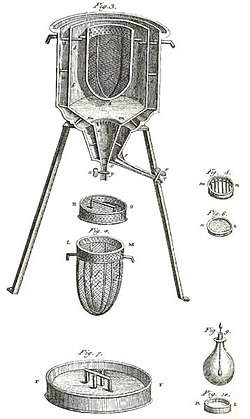
Back كيمياء حرارية Arabic كيميا حراريه ARZ Termokimya Azerbaijani Тэрмахімія Byelorussian Тэрмахімія BE-X-OLD Термохимия Bulgarian তাপ-রসায়ন Bengali/Bangla Termohemija BS Termoquímica Catalan کیمیای گەرمی CKB
Thermochemistry is the study of the energy and heat to do with chemical reactions and physical transformations (physical changes). Physical transformations are when a state of matter (a solid or liquid, for example) changes to another state. Examples of transformations include melting (when a solid becomes a liquid) and boiling (when a liquid becomes a gas).
A reaction gives out or takes in energy. A physical transformation also gives out or takes in energy. Thermochemistry looks at these energy changes, particularly on a system's energy exchange with its surroundings. Thermochemistry is useful in predicting reactant and product quantities at all times during a given reaction. Thermochemists do this by using data, including entropy determinations. Thermochemists will tell if a reaction is spontaneous or non-spontaneous, favorable or unfavorable.
Endothermic reactions take in heat. Exothermic reactions give out heat. Thermochemistry combines the concepts of thermodynamics with the idea of energy in the form of chemical bonds. It includes calculations of such quantities as heat capacity, heat of combustion, heat of formation, enthalpy, entropy, free energy, and calories.
